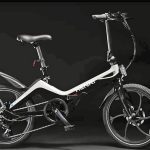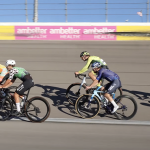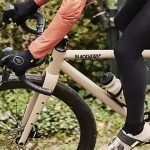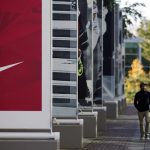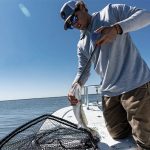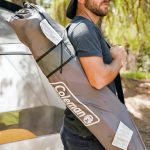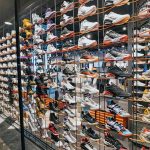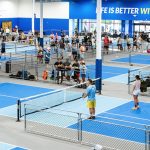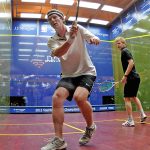Adidas Group reported that preliminary results show it reached its updated top- and bottom-line financial targets on an underlying basis for 2014. Excluding the impact from its divestiture of Rockport, currency-neutral (c-n) Group sales increased 6 percent in 2014. In euro terms, sales were up 2.1 percent to €14.8 billion ($22.4 bn).
Net income attributable to shareholders reached the earnings target of around €650 million ($981.4 mm), excluding goodwill impairment losses and the impact of the Rockport divestiture. That represents a decline of 22.5 percent compared to the 2013 earnings, excluding goodwill impairment losses, of €839 million.
Due largely to challenges at TaylorMade Golf and turmoil in Russia, the company had reduced the forecast in July, before which it had projected a figure between €830 million and €930 million.
All sales channels contributed to the positive top-line growth in 2014, with strong double-digit growth in Retail.
From a brand perspective, Adidas Brand sales grew 11 percent c-n for the full year. The 2014 World Cup and the victory of the German team it sponsors particularly helped the Adidas brand earlier last year. Reebok recorded its seventh consecutive quarter of growth in the fourth quarter and ended the year with a c-n sales increase of 5 percent. Results weren’t given for TaylorMade.
Adidas Group CEO Herbert Hainer said, “Our strong sales momentum for Adidas and Reebok continued through the fourth quarter, with the Group recording double-digit growth in Western Europe, Greater China, European Emerging Markets and Latin America. Despite continuing pressure as a result of further currency weakness in Russia/CIS, we achieved our 2014 earnings target. Now we are looking forward to 2015 where we will continue to invest in our growth opportunities and present our long-term vision for the successful future of the Adidas Group.”
The update made no mention of the United States, where Adidas has slipped to third place behind Nike and Under Armour. In the third quarter, sales in the North America region on a c-n basis were down 1.4 percent. Propped up by strength in running with its Boost technology and football (soccer), Adidas Brand saw mid-single-digit sales growth in the quarter. Double-digit declines were seen at TaylorMade and Reebok.
Moves to strengthen the U.S. business have included moving design and advertising jobs to the U.S. from Germany, the launch of a multi-year advertising campaign, the hiring of three key designers from Nike to start a new Brooklyn studio, and adding Kanye West and Pharrell Williams to its celebrity roster. Adidas has also announced plans to sign 250 NFL and 250 MLB players for endorsement deals over the next three years, up from a total of fewer than 40 currently; and made waves in reaching a deal to replace Nike as the new uniform supplier to the University of Miami.
Hainer said on the third-quarter conference call, “Regaining our form in this market is a top priority on our group's agenda.”
Net income for 2014 was impacted by two non-operational items. Goodwill impairment losses related to Adidas’ Russia/CIS cash-generating unit largely as a result of the significant deterioration of the Russian ruble amounted to around €80 million ($120.1 mm). In November, Adidas said it expected an operational hit from Russia of about €100 million.
The divestiture of Rockport, which was acquired as part of its $3.8-billion purchase of Reebok in 2006, is expected to have a negative non-operational P&L impact in a “double-digit million Euro amount.”
On Jan. 23, Adidas Group said it entered into a definitive agreement to sell Rockport, the walking and casual shoe brand, to a new entity formed by Berkshire Partners and New Balance for $280 million. Rockport will become part of a new company, which will also include New Balance’s Drydock business. Reebok acquired Rockport in 1986 for $118.5 million.
Hainer had said the sale “will allow us to reduce complexity and pursue our target consumer more aggressively with the Adidas, Reebok and TaylorMade brands.”
The disposal of Rockport may focus more attention on whether Adidas may seek to sell Reebok next. Last year, a Hong Kong-based private-equity investor was said by people familiar with the matter to be preparing an offer for the brand. Hainer recently said that Reebok remains key to the company's future strategy. Last week, Reebok launched “Be More Human,” its biggest marketing campaign in over a decade centered on its recent fitness push.
Hainer admitted to the German newspaper Süddeutsche Zeitung last week that he had made some mistakes in recent years, including launching too many golf products in a weakening category. But he also asserted investments are being made to turnaround the overall business, including the biggest marketing campaign in the company's history launching in February with a particular focus on the US market, even if “there are no overnight solutions there.”
Hainer, the company’s CEO since 2001 who last year had his contract extended until 2017 for succession reasons, also asserted he has no plans to step down despite investor discontent. Hainer said, “If I no longer had the ambition and the energy, and the firm belief that I can bring the company further forward, then I would stop immediately.”



